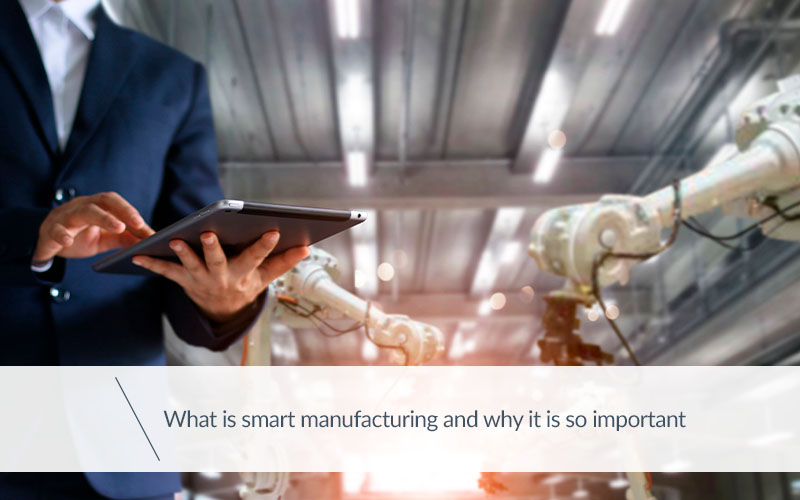
Digital transformation is now a reality that is all-encompassing: with time, it has involved also the manufacturing sector, pushing businesses to adopt modernised production processes, thereby making them smarter. This phenomenon is known as Smart Manufacturing (SM) or Industry 4.0.
Italy is one of the leading European manufacturing countries in terms of production volumes, added value and workforce, with strategic knowhow in fields such as machinery, fashion, food, automotive and pharmaceutical, and where process updating with investments in smart and digital solutions is essential for the future, as it is to keep up with the current challenges.
Indeed today, it is no longer sufficient to grow in terms of volumes and revenue to be successful in a specific market segment. It is vital to know how to adapt quickly to change and seize opportunities before others do.
Let’s dig deeper, and understand what smart manufacturing actually means and why it is so important for tackling today’s and tomorrow’s challenges.
What is smart manufacturing?
According to the definition given by the tech industrial firm IBM, smart manufacturing (or Industry 4.0) is the realisation of the digital transformation of the field, delivering real-time decision making tools, enhanced productivity, flexibility and agility.
Manufacturing companies are evolving, moving onto new business models such as mass personalisation, product-as-a-service and the introduction of constant innovation. It is necessary to activate resources and automated, integrated, monitored and assessed processes continually to reach these objectives, on the basis of available information for timely management and optimised execution.
This represents change on a colossal scale, which is pushing producers to invest in new technologies - including IoT (internet of things), cloud computing and data analysis, artificial intelligence and machine learning - to be integrated with their own existing production systems, guiding the manufacturing sector into the fourth industrial revolution.
The goal of smart manufacturing is not so much to update plants and production processes from a technological point of view, rather that of automate operations and use data analysis to improve production performance.
What exactly is smart manufacturing?
We have seen that by the term SM we mean the digitalisation and automation of industrial processes via the use of new technologies and tools which are interconnected.
Going into even further detail, the following are involved in this evolution:
- the internet of things (IoT)
- data analysis
- cloud data storage
- business intelligence
- artificial learning
- machine learning
- drones and driverless vehicles
- blockchains
- edge computing
- predictive analysis
The adoption of these factors and technologies evidently requires investments not only in terms of devices and equipment, but also in skilled and qualified staff, who must be able to conduct, for example, data analysis, data-driven processes, predictive analyses and suchlike activities.
The advantages of smart manufacturing
Renewing the production processes of the manufacturing industry also brings about positive collateral effects on the market.
In particular, investment in smart manufacturing paves the way for:
- increased efficiency
- increased production
- increased process quality
- energy savings
- saving on fixed costs in the long term
- increased reactivity to changes
- increased competitivity in the global market
It is important to underline however, that these advantages follow an initial investment of capital and resources that are equally as significant, in the face of costs savings over the medium and long term.
People are always at the core of this process, people who can interact and manage such new technologies. You can’t be a smart manufacturer without a smart workforce.



